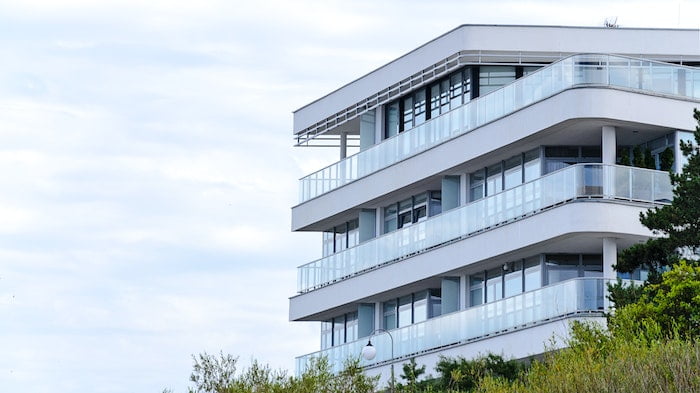Drug Rehab & Alcohol Rehab in Northamptonshire and near Northamptonshire
Quick Links for drug rehab & alcohol rehab in Northamptonshire and near Northamptonshire
- Private vs. NHS-funded Drug Rehab & Alcohol Rehab Treatment in Northamptonshire
- What is a Dual Diagnosis at Drug Rehab & Alcohol Rehab in Northamptonshire?
- What is a Medical Alcohol & Drug Detox at Rehab in Northamptonshire?
- What are Therapy Techniques for Alcohol & Drug Addiction in Northamptonshire?
- What are the Alternatives to Residential Drug Rehab & Alcohol Rehab in Northamptonshire?
- Q&As about Drug Rehab and Alcohol Rehab in Northamptonshire
- How Do I Contact Rehab Recovery in Northamptonshire?
In order to understand drug and alcohol abuse in Northamptonshire, you have to start with the facts and statistics.
A survey carried out by Northamptonshire council found that 34% of individuals aged between 16 and 59 had never taken a drug before. However, 9% admitted to trying drugs for the very first time within the past 12 months.
A recent study carried out by the Northamptonshire council found that there are approximately 3,415 people in Northamptonshire who abuse opiates or cocaine. Of these users, approximately 47% were not seeking or accessing rehab treatment for their addiction.
Northamptonshire Council also surveyed a group of secondary school pupils, where 18% of all year 10 students admitted to taking drugs at least once before. [1,2]
On top of this, 71% of all secondary school students who were surveyed admitted to having taken cannabis in the past week or knowing someone who had. [1]
Below, we provide some statistics about alcohol and drug use in Northamptonshire:
| Drug and Alcohol Statistics in Northamptonshire (2019) | Data |
| Approximate number of people in Northamptonshire who abuse opiates or cocaine | 3,415 |
| Approximate number who were not seeking or accessing treatment for their addiction in Northamptonshire | 47% |
| Percentage of all adults in treatment for drug addiction in Northamptonshire who also suffered from a mental health issue | 27% |
| Percentage of all high school students who were surveyed admitted to having taken cannabis in the past week or knowing someone who had in Northamptonshire | 71% |
Our experts can provide guidance on a wide range of subjects related to drug & alcohol rehab in Northamptonshire, including:
- Inpatient drug rehab & alcohol rehab in Northamptonshire
- Outpatient drug rehab & alcohol rehab in Northamptonshire
- Both private and free drug rehab & alcohol rehab services in Northamptonshire
- Alcohol detox and drug detox services at separate from drug and alcohol rehab in Northamptonshire
- Home detox drug & alcohol services in Northamptonshire
- Aftercare after drug rehab & alcohol rehab treatment in Northamptonshire
For more information about drug and alcohol rehab in Northamptonshire, please contact Rehab Recovery today at 0800 088 66 86
Private vs. NHS-funded Drug Rehab & Alcohol Rehab Treatment in Northamptonshire & near Northamptonshire

Throughout Northamptonshire and the rest of the UK, we are incredibly lucky to benefit from the NHS.
The NHS (National Health Service) provides free, reliable information for drug and alcohol addictions and dependencies, as well as limited support through various NHS Foundation Trusts.
Whilst you are able to gain access to NHS-funded rehab treatment, funding is very limited and waiting times can be long in Northamptonshire.
You might have to wait weeks or even sometimes months in order to get access to NHS-funded drug and alcohol rehab treatment. As demand is extremely high for these services, you will have to go on a waiting list to get your treatment. If your addiction is severe, then this might not be the most appropriate form of treatment for you.
However, NHS-funded rehab treatment is completely free. This means that if you need to attend drug and alcohol rehab in Northamptonshire, but cannot afford to go private, then you can attend NHS funded rehab treatment completely free of charge.
NHS-funded drug rehab and alcohol rehab treatment in Northamptonshire is suffering from a lack of funding, meaning that the NHS cannot afford to create their own rehab centres across the UK.
Instead, they simply pay for you to attend a private drug and alcohol rehab centre, so that you can gain access to high-quality drug and alcohol rehab treatment for free.
This means that you will be placed in a private rehab centre alongside fee-paying patients.
You will often be seen by the same doctors and offered the same rehab therapy treatments in Northamptonshire.
Free drug rehab & alcohol rehab and NHS-run drug rehab & alcohol services in Northamptonshire & near Northamptonshire
1. CAMHS Northamptonshire
Address: First Floor, Newland House, Northampton, NN1 3EB
Telephone: 03000 273 737
Website: https://www.nhft.nhs.uk/camhs
2. Turning Point Drug & Alcohol Support – Northamptonshire & Milton Keynes
Address: 1-9 Barton Road, Bletchley, Milton Keynes, Buckinghamshire, MK2 3HU
Telephone: 01234 219 817
Website: https://www.turning-point.co.uk/
3. Substance to Solution (Change Grow Live Drug & Alcohol Rehab Support)
Address: Spring House, 39 Billing Road, Northampton, NN1 5BA
Telephone: 0808 169 8512
Website: https://www.changegrowlive.org/substance-to-solution-northamptonshire/northampton
4. Bridge Drug & Alcohol Misuse Programme
Address: 63c Gold Street, Northampton, NN1 1RA
Telephone: 01604 621 259
Website: https://www.bridge-northants.org.uk/
However, when it comes to private drug and alcohol rehab in Northamptonshire, individuals who pay for their treatment are seen almost immediately. Unique with NHS-funded rehab treatment, there are no waiting lists, and you will often be seen and admitted into a drug and alcohol rehab facility within just a day or two.
You will also get access to a wide range of treatment options within private drug and alcohol rehab in Northamptonshire, including cognitive behavioural therapy, holistic therapy and group therapy.
The major downside to private drug and alcohol rehab is that you have to pay a lot of money to attend. Some people end up paying thousands of pounds in order to attend drug rehab and alcohol rehab in Northamptonshire for just a few weeks.
A lot of people also go on to relapse after attending rehab for the first time, despite the amount of effort put into relapse prevention and aftercare services that work to give them the best chance of maintaining sobriety.
Whether you opt for private or NHS-funded drug and alcohol rehab in Northamptonshire, you will be monitored around the clock by doctors and specialists. You will get the chance to undergo a safe and monitored detox, surrounded by doctors and prescribed all of the relevant information.
For more information about drug and alcohol rehab in Northamptonshire, please contact Rehab Recovery today at 0800 088 66 86
What is a Dual Diagnosis at Drug Rehab & Alcohol Rehab in Northamptonshire & near Northamptonshire?

Man holding his head at a drug rehab & alcohol rehab in Northamptonshire
A dual diagnosis is when you suffer from an addiction to drugs or alcohol and also suffer from a mental health condition.
The two illnesses are closely linked, as a lot of people who suffer from a mental health illness go on to use drugs and alcohol as a coping mechanism in order to escape the pain and suffering caused by their mental illness.
Likewise, people who suffer from an addiction issue often go on to form a mental health condition as a result of their addiction.
This is why a lot of people who suffer from an addiction issue need treatment for dual diagnosis at a drug & alcohol rehab in Northamptonshire
- Schizophrenia
- Bipolar Disorder
- Eating disorders
- Depression
- Generalised Anxiety Disorder (GAD)
- Borderline Personality Disorder (BPD)
- Obsessive Compulsive Disorder (OCD)
- Attention Deficit Hyperactivity Disorder (ADHD)
- Post Traumatic Stress Disorder (PTSD)
- Codependency
Many organisations across the UK offer free mental health support outside of the rehab system, whether you are also suffering from addiction or not.
You can also reach out to a number of helplines, including Mind UK, YoungMinds, Rethink Mental Illness, Samaritans, National Institute for Health and Care Excellence (NICE), Change Grow Live and Papyrus.
Rehab treatment for a dual diagnosis will include a range of therapy techniques, including one-to-one therapy, group therapy, family therapy and cognitive behavioural therapy. You will receive therapy over a number of weeks, depending on how severe your addiction is.
You will also be offered the chance to receive outpatient therapy treatment after rehab, as well as the chance to attend a range of self-help groups such as Alcoholics Anonymous Northamptonshire, Narcotics Anonymous Northamptonshire and Cocaine Anonymous, which encourage you to lean on a higher power when addiction seems insurmountable, or SMART Recovery for a more secular approach.
If you are suffering from too many temptations and triggers in your home life, you may also be able to gain temporary residence in a sober living house, providing a similar supporting environment to residential drug & alcohol rehab in Northamptonshire.
If you think that you or someone that you know is suffering from mental health issues alongside an addiction issue, then speak to a member of the Rehab Recovery team and ask for help and support for a dual diagnosis in Northamptonshire.
Alcohol & Drug Detox at Drug Rehab & Alcohol Rehab in Northamptonshire & near Northamptonshire

Therapy at a drug rehab & alcohol rehab in Northamptonshire
If you are addicted to alcohol, then you will need to undergo a detox at alcohol rehab or at a dedicated drug and alcohol detox clinic in order to recover.
A detox is when you withdraw from taking an addictive substance for a period of time so that your body no longer depends on the addictive substance or craves it.
This is only applicable for substances that cause physical dependence, such as alcohol, heroin addiction, ketamine and benzodiazepines.
Cannabis use disorder, cocaine addiction and crack cocaine addiction, for example, do not require a detox.
When you attend alcohol and drug rehab in Northamptonshire, you will likely have to undergo a detox before anything else. This is because you have to rid your body of any addictive substances before you enter your therapy so that you do not experience any cravings.
Your detox will last anywhere between 8 – 10 days. During this time, you will experience a range of different withdrawal symptoms, which can make your withdrawal and detox from the addictive substance very unpleasant and difficult.
- Abdominal cramping
- Vomiting
- Headaches
- Fatigue
- Rapid heart rate and palpitations
- Delirium tremens
- Wernicke’s Encephalopathy
- Alcohol seizures
These symptoms could last anywhere between a week, to 10 days to 2 weeks. During your time at a rehab centre in Northamptonshire, doctors and specialists will monitor your withdrawal symptoms so that you do not become overwhelmed or put your health at any risk.
- Liver failure
- Alcohol hepatitis
- Heart issues
- Blood pressure issues
- Brain damage
- Gastrointestinal issues
During a medically-assisted detox at rehab or at home, patients will receive medication that’s tailored to their specific, pre-arranged detox plan.
For alcohol detox, this will involve the use of drugs such as Librium, also known as Chlordiazepoxide, which is extremely effective at reducing the effects of alcohol withdrawal syndrome and making alcohol rehab treatment much easier and more effective.
For heroin detox and recovery from other opioid use disorders, substances like methadone and buprenorphine are widely used for the same reasons, making heroin withdrawal a much safer process.
If you are physically dependent on a substance and think that you would benefit from drug and alcohol rehab in Northamptonshire, then give Rehab Recovery a call
What Therapy Techniques Are Used at Drug Rehab & Alcohol Rehab in Northamptonshire & near Northamptonshire?

Therapy for alcohol addiction at drug rehab & alcohol rehab in Northamptonshire or near Northamptonshire
There is a wide range of therapy techniques for people who suffer from substance use disorders.
One of the best and most beneficial parts of attending drug and alcohol rehab in Northamptonshire is that you get the chance to try different rehab therapy techniques.
- Group Therapy and Group Psychotherapy
- Family Therapy
- Individual Therapy
- Codependency Treatment
- Cognitive Behavioural Therapy
- Brief Intervention
- Motivational Interviewing, Motivational Enhancement Therapy and other forms of motivational therapy
- Eye Movement Desensitisation and Reprocessing
- TSF (Twelve-Step Facilitation Therapy)
- Dialectical Behavioural Therapy
- Acceptance and Commitment Therapy
- Contingency Management
- Rational Emotive Behaviour Therapy
- Holistic and alternative therapies (music therapy, art therapy, mindfulness, meditation, yoga, acupuncture, equine therapy, drama therapy, etc)
Whilst most people haven’t ever tried therapy before attending drug and alcohol rehab in Northamptonshire, it is important that you keep an open mind when it comes to trying different therapy techniques for the very first time.
For more information about drug and alcohol rehab in Northamptonshire, please contact Rehab Recovery today at 0800 088 66 86
What are the Alternatives to Residential Drug Rehab & Alcohol Rehab in Northamptonshire & near Northamptonshire?

Alcohol support group at a drug rehab & alcohol rehab in Northamptonshire
If you are in need of drug and alcohol rehab in Northamptonshire but do not want to attend inpatient rehab, there are a range of alternatives available to you.
Whilst not every option will be available or suitable for you, it is worth exploring the options below with your healthcare provider in Northamptonshire to see if they could be the right fit for your drug and alcohol rehab needs.
1. Drug & alcohol self-help groups in Northamptonshire & near Northamptonshire
If you do not want to attend inpatient drug and alcohol rehab in Northamptonshire or do not need to, then you might be able to attend self-help groups, instead.
There is a range of self-help groups across Northamptonshire and the rest of the UK. These include Alcoholics Anonymous, Narcotics Anonymous, SMART meetings and Al-Anon family meetings and Alateen adolescent support.
These meetings are entirely free to use and to attend, and are usually run by individuals suffering from addiction, for people suffering from an addiction.
2. Home drug & alcohol detox in Northamptonshire & near Northamptonshire
If you need to detox from the addictive substance but do not want to attend inpatient drug and alcohol rehab in Northamptonshire, then you might want to consider a home detox.
This way, you will get to detox in the comfort of your own home and will have daily phone calls with doctors and medication through the post.
3. Al-anon family group meetings in Northamptonshire & near Northamptonshire
Al-anon family group meetings are available in Northamptonshire for family and friends of anyone suffering from a substance use disorder, to ensure that they feel supported throughout the process.
4. Outpatient drug rehab & alcohol rehab treatment in Northamptonshire & near Northamptonshire
If inpatient drug and alcohol rehab in Northamptonshire is not for you, then you might want to consider outpatient drug and alcohol rehab in Northamptonshire.
This way, you get to remain living in your home and continuing your day-to-day life. You will then visit rehab centres on a daily or weekly basis to receive any medication or treatment that you may need.
Q&As about Drug Rehab & Alcohol Rehab in Northamptonshire & near Northamptonshire

Two men talking about alcohol addiction at a drug rehab & alcohol rehab in Northamptonshire or near Northamptonshire
Below, we answer some common questions about the drug and alcohol rehab process in Northamptonshire:
1. Can I use my phone in Northamptonshire drug rehab & alcohol rehab centres?
The answer to this question will very much depend on which drug and alcohol rehab centre in Edinburgh or near Edinburgh that you are placed in.
Most rehab centres permit using your phone or the internet throughout the duration of your rehab treatment, although this will depend on whether or not it will get in the way of your treatment in Northamptonshire.
2. Can my family visit me in drug rehab and alcohol rehab in Northamptonshire?
Your family will be able to visit you at drug and alcohol rehab in Northamptonshire, as long as they are providing you with support, encouragement and motivation. They will need to book in advance and let the rehab centre know that they are planning on visiting.
3. How long does drug rehab and alcohol rehab in Northamptonshire last?
How long your stint in rehab lasts depends on a number of factors. This includes how severe your addiction is, what substance you are addicted to and whether or not you require a medical drug or alcohol detox.
Most people who only require a medical drug or alcohol detox will attend rehab for 10 days, although this is the least amount of time people spend in drug and alcohol rehab.
If you require a combination of a physical detox and psychological treatment, then you will need to stay in drug and alcohol rehab in Northamptonshire for at least 28 days.
If your addiction is more severe, then you will need to stay in rehab in Northamptonshire for a total of 90 days.
How Do I Contact Rehab Recovery About Drug Rehab & Alcohol Rehab in Northamptonshire & Near Northamptonshire?

Man holding his thumb up at a drug rehab & alcohol rehab in Northamptonshire
If you or someone you know is suffering from a drug or alcohol addiction, then speak to someone at Rehab Recovery for support and advice. Our team is available on 0800 088 66 86 or you can visit our website online at www.rehab-recovery.co.uk.
Every rehab in in Northamptonshire, th wider England and Wales that we work with is vetted by the Care Quality Commission.
Get help for addiction anywhere in Northamptonshire, including in Northampton, Kettering, Daventry, Wellingborough, Corby Warmington, Woodford, Woodnewton, Yarwell, Ashley, Barton Seagrave, Brampton Ash, Braybrook, Broughton, Burton Latimer, Cranford, Cransley, Desborough, Dingley, Geddington, Grafton Underwood, Harrington, Loddington, Mawsley, Newton and Little Oakley, Deanshanger, Scaldwell, Walgrave and many more.


